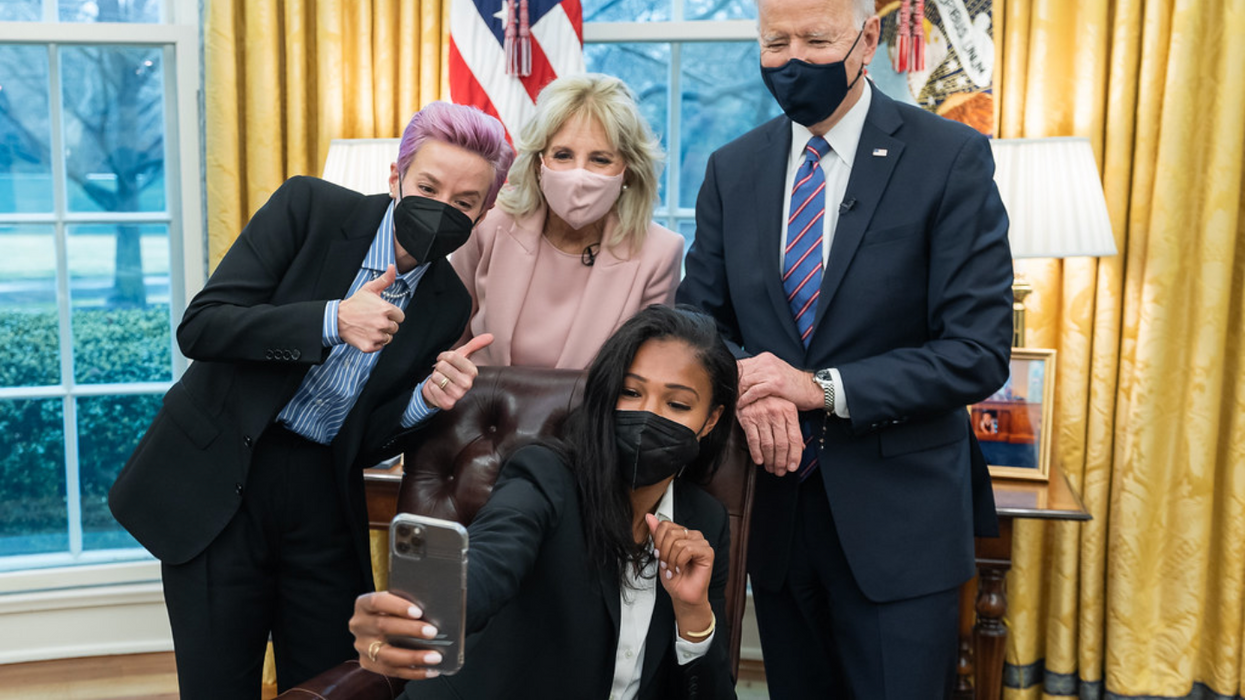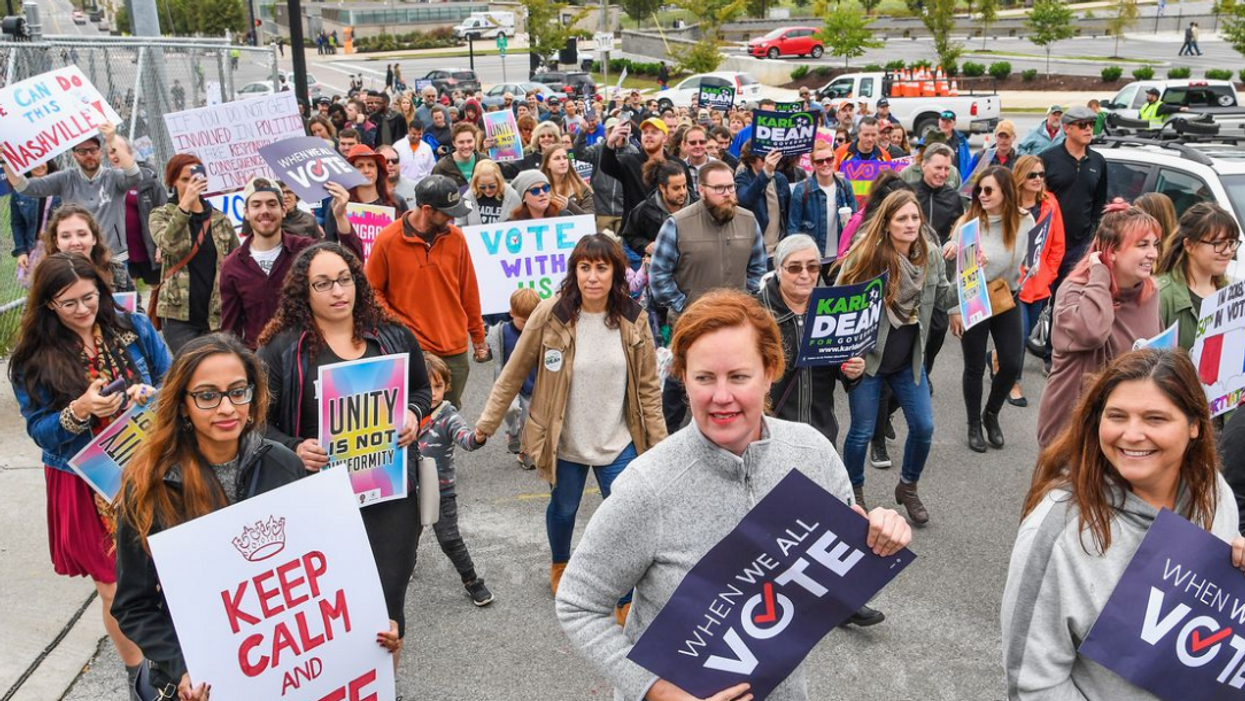Younger Voters Favor Biden And Democrats By Historic Margins
Reprinted with permission from American Independent
A new poll of younger voters reveals that they strongly back President Joe Biden and the Democratic congressional majority, while more than two-thirds of them disapprove of congressional Republicans.
For 21 years, the Institute of Politics at the Harvard Kennedy School has surveyed young Americans through its Harvard Youth Poll. The results of its spring 2021 poll, released Friday, reveal adults under age 30 "overwhelmingly approve of the job President Biden is doing, favor progressive policies, and have faith in their fellow Americans."
Three-fifths of voters aged 18-29 approve of Biden's overall job performance, 59 percent to 38 percent — slightly higher even than President Barack Obama's numbers in the institute's 2009 poll.
Among college students who are registered to vote, 63 percent approve of Biden's performance, a higher level of support than any attained in the poll by George W. Bush, Obama, or Donald Trump.
The results show growing support for progressive policies, including double-digit increases over the past five years in support for climate action, government spending to reduce poverty, and universal health care. Young voters identify with the Democratic Party over the Republican Party by a 41 percent to 22 percent plurality; 40 percent say they lean more liberal, contrasted with 27 percent who lean more conservative.
While just 36 percent of participants say they consider themselves "politically engaged or politically active," 41 percent say they will definitely vote in the 2022 midterms, and another 19 percent say they'll probably do so.
This would be good news for the Democratic majorities in the House and the Senate. Younger voters approve of Democrats in Congress by a 52-45 percent majority, while they disapprove of congressional Republicans by a 69-28 percent supermajority. By a 53-14 percent spread, they view the Republican Party as "too extreme."
They also say they have an unfavorable view of Trump, by a 65-28 percent margin; 54 percent say that history should evaluate Trump as a "bad president," "terrible president," or the "worst president ever," while just 26 percent say he should be deemed "good" or better.
This growing progressive sentiment among younger votes comes as young people have taken the lead on issues of racial justice, climate action, and gun safety — and been attacked by prominent Republicans for doing so.
Trump and his team repeatedly bullied teenage climate activist Greta Thunberg, raging after she was named Time magazine's Person of the Year. Trump said the then-16-year-old in December 2019 had "anger management" issues and needed to "chill."
Last October, Rep. Chip Roy (R-TX) attacked David Hogg, a 20-year-old survivor of the 2018 mass shooting at a high school in Parkland, Florida, and an activist against gun violence, calling him "functionally illiterate" for criticizing Trump's separation of immigrant kids from their families.
In January, footage resurfaced of Rep. Marjorie Taylor Greene (R-GA) confronting Hogg in March 2019, accusing him of "using kids" to "attack the Second Amendment" and branding him a "coward" for not responding to her taunts.
Republican lawmakers around the country have also sought to suppress student voting by shutting down early voting sites on campuses, refusing to accept student IDs as valid for voter identification, and prohibiting students from registering at their college addresses.
Published with permission of The American Independent Foundation.












